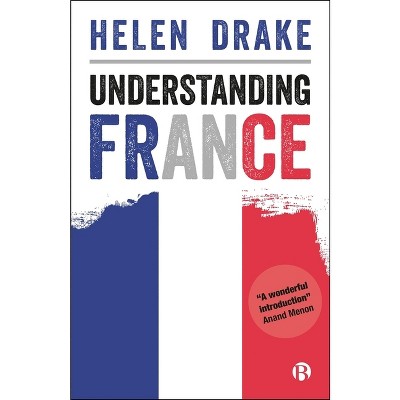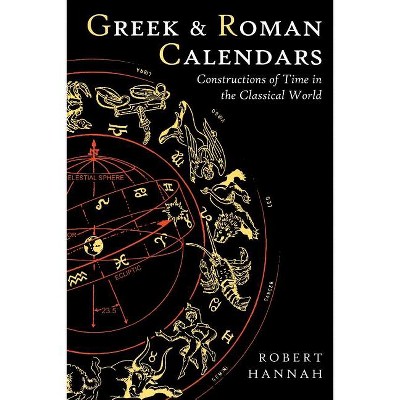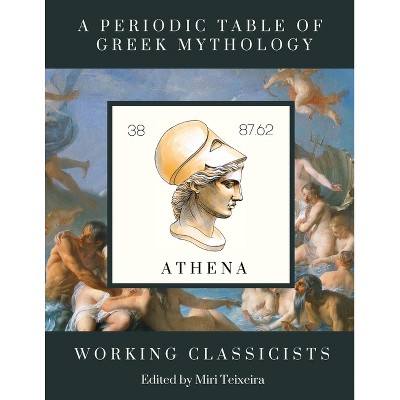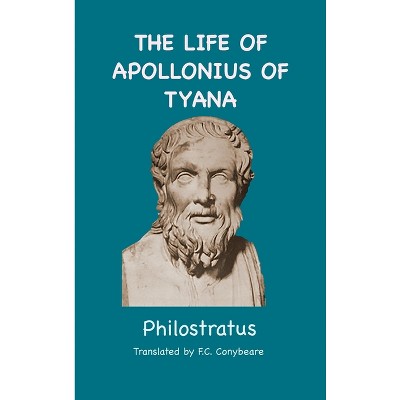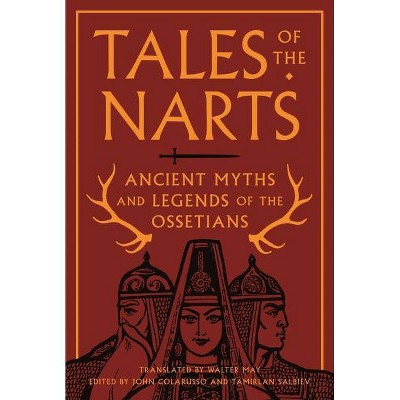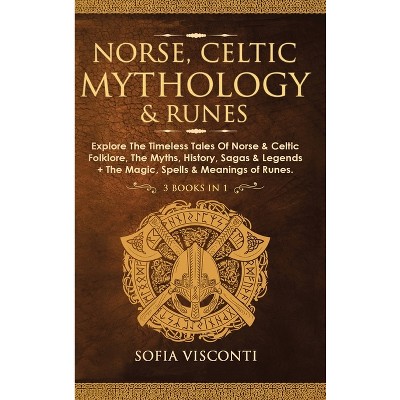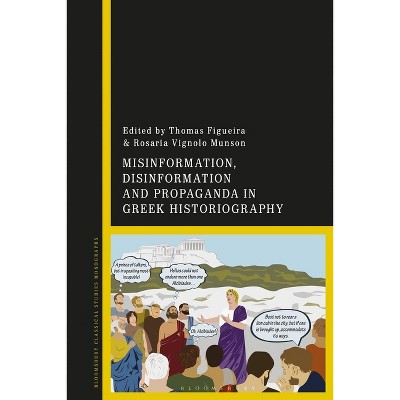Sponsored

Heracles and Athenian Propaganda - by Sofia Frade (Paperback)
$39.99
In Stock
Eligible for registries and wish lists
Sponsored
About this item
Highlights
- Heracles and Athenian Propaganda examines how Greece's most important hero was appropriated and portrayed by Athens in religion, politics, architecture and literature, with a detailed study of Euripides' Heracles in relation to this interplay between the hero and the city's ideology.
- About the Author: Sofia Frade is Assistant Professor in Classics at the University of Lisbon, Portugal.
- 176 Pages
- Social Science, Folklore & Mythology
Description
About the Book
A case-study of Heracles' role in Athenian propaganda and how this affects the reading of Euripides' Heracles.Book Synopsis
Heracles and Athenian Propaganda examines how Greece's most important hero was appropriated and portrayed by Athens in religion, politics, architecture and literature, with a detailed study of Euripides' Heracles in relation to this interplay between the hero and the city's ideology. Though Athens needed a hero of Hellenic stature, Heracles was a deeply problematic figure: a violent hero of ancient epic, with an aristocratic nature and a murderous temper, who did not naturally fit into the new ideals of democratic society at Athens.
Examining how Euripides' play fits within the space of the polis and its political ideology, Sofia Frade asks specific questions of tragedy and politics: how does Euripides' tragic drama of grief, insanity and murder reconcile this hero to a palatable, patriotic ideal? How does the tragic hero relate to his own representations and his cult within the polis? In a city so marked by iconographic propaganda, how did the imagery influence the audience? By looking at the play's larger contexts - literary, civic, political, religious and ideological - new readings are offered to the most problematic elements of the play, including the question of its unity, the nature of the hero's madness and the role of the gods.Review Quotes
"[I]lluminating and persuasive." --Dr. Cliff Cunningham, Sun News Austin
"[Frade's] monograph and arguments [are] persuasive and robust, especially considering the 'cultural surface, ' which is a strong tool for analyzing the use of myth for identity and shaping political narratives. Therefore, the reviewer strongly recommends reading this excellent monograph for anyone interested in the relationship between politics and myth in ancient Greece." --Bryn Mawr Classical ReviewAbout the Author
Sofia Frade is Assistant Professor in Classics at the University of Lisbon, Portugal.Dimensions (Overall): 9.21 Inches (H) x 6.14 Inches (W) x .37 Inches (D)
Weight: .56 Pounds
Suggested Age: 22 Years and Up
Number of Pages: 176
Genre: Social Science
Sub-Genre: Folklore & Mythology
Publisher: Bloomsbury Academic
Format: Paperback
Author: Sofia Frade
Language: English
Street Date: November 28, 2024
TCIN: 1004356948
UPC: 9781350370678
Item Number (DPCI): 247-40-6664
Origin: Made in the USA or Imported
If the item details aren’t accurate or complete, we want to know about it.
Shipping details
Estimated ship dimensions: 0.37 inches length x 6.14 inches width x 9.21 inches height
Estimated ship weight: 0.56 pounds
We regret that this item cannot be shipped to PO Boxes.
This item cannot be shipped to the following locations: American Samoa (see also separate entry under AS), Guam (see also separate entry under GU), Northern Mariana Islands, Puerto Rico (see also separate entry under PR), United States Minor Outlying Islands, Virgin Islands, U.S., APO/FPO
Return details
This item can be returned to any Target store or Target.com.
This item must be returned within 90 days of the date it was purchased in store, shipped, delivered by a Shipt shopper, or made ready for pickup.
See the return policy for complete information.
Trending Non-Fiction

$19.31
was $20.98 New lower price
4 out of 5 stars with 65 ratings

$18.28
was $19.58 New lower price
4.7 out of 5 stars with 17 ratings

$4.59
MSRP $7.99
Buy 2, get 1 free select books
4.8 out of 5 stars with 123 ratings

$6.20
MSRP $10.95
Buy 2, get 1 free select books
4.8 out of 5 stars with 33 ratings

$7.09
MSRP $9.99
Buy 2, get 1 free select books
4.9 out of 5 stars with 46 ratings
Discover more options

$9.89 - $18.99
MSRP $13.99 - $24.99
5 out of 5 stars with 1 ratings
